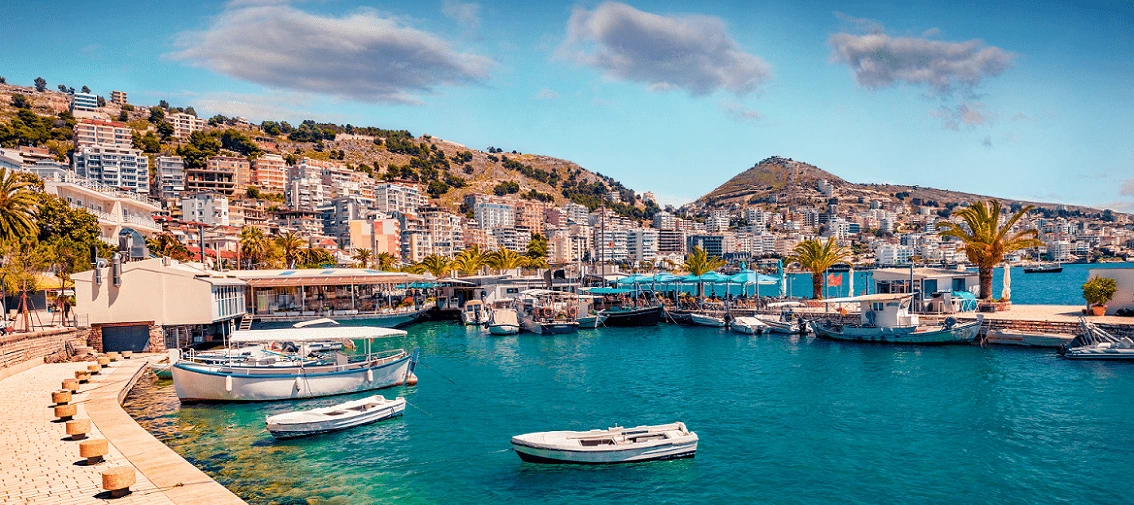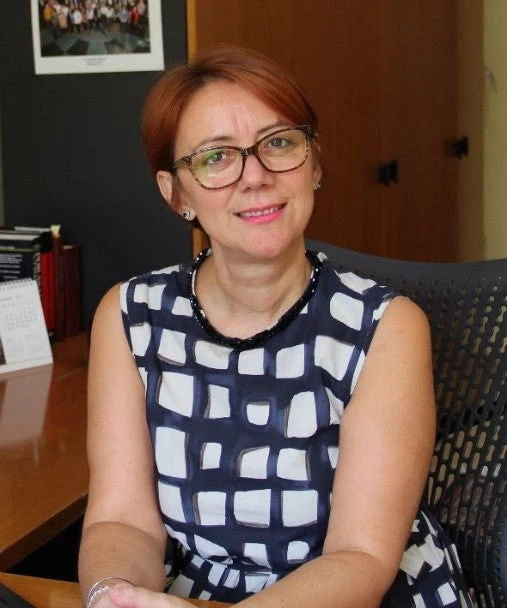 Saranda port
Saranda port
In a striking example, Albania has shown how the tourism sector can drive economic development. Following the country’s turbulent economic and political transition in the 1990s, tourism was perched on the sidelines of the Albanian economy. International travel, hospitality and related services essentially catered to returning members of the country’s large diaspora. However, in the 2000s, several major European tourism operators started recognizing Albania’s potential to join the Mediterranean’s thriving, though often overcrowded, sun-and-sand destinations. A surge of investments followed, and, between 2000 and 2019 the number of hotels, rooms, and beds increased more than tenfold.
Over the past two decades, the contribution of Albania’s tourism and travel sector to the country’s gross domestic product (GDP) has steadily increased and reached more than 8%, creating jobs and generating 38% of total exports. Looking back, 2019 was Albania’s best year for tourism, with 6.4 million foreign visitors and $2.3 billion in sectoral earnings. The future looked promising.
Unfortunately, when COVID-19 swept across the world, the number of international arrivals plunged by 60% and the sector’s earnings fell to $1.1 billion with the accommodations subsector shrinking by 75% in the second quarter of 2020. While 10% of Albanian businesses reported shutting down, another 60% earned less than 10% of their 2019 revenue, and more than half the employees in the sector were laid off.
Luckily, as travel restrictions eased and economies launched recovery efforts, the tourism sector bounced back with the arrival of 5.7 million foreign visitors and tourism earnings achieving pre-pandemic levels during the summer of 2021. While the sector was just finding its feet, Russia’s invasion of Ukraine dealt a second blow. The good news is that, despite the war, the summer of 2022 has been even better—as of October, the country received 6.8 million visitors, with projected earnings of more than $3.3 billion.
While the recovery was swift and remarkable, COVID-19 exposed the tourism sector’s vulnerability to external shocks, highlighting the need for a more diversified, resilient, and sustainable tourism sector.
Challenges
Now, as hotels, restaurants, and operators recover from the economic impacts of the pandemic, they face three major hurdles:
Staffing: While the pandemic’s impact on the number of visitors and earnings has been fully reversed, it has exacerbated the situation regarding the shortage of qualified personnel. Kliton Gerxhani, Chairman of the Albanian Tourism Operators Association (ATOA) and co-owner of Albania Holidays DMC, emphasizes, “With no proper tourism schools, we invested a lot in training our staff on the job over the last five to 10 years. Yet, we were forced to let them go—first the younger staff and then the more experienced ones.”
In 2022, skills shortage continued to take a toll on the industry. While the sector tried to bring back staff following the recovery of tourism in Europe, many had already found jobs in other sectors or moved abroad, leading to reduced service capacity. In response, the provision of training courses for the accommodation sector and also for maritime activities could address the issue of skills shortage through training programs that award recognized international certifications.
The War in Ukraine: While the war has not impacted the total number of visitors to the country, it has triggered logistical and supply issues for the industry. Supply chain disruptions and surging food and oil prices have increased costs, eating into the sector’s revenue share in 2022. COVID-19 and the war in Ukraine have also altered tourist behavior with a higher rate of booking cancellations, impacting planning and logistics of supplies and management of reservations, and underlining the need for digitalization.
Opportunities and Branding: Albania is known as a beach destination for tourists who usually prefer shorter stays with low levels of individual spending—a profile associated with an undiversified tourism value chain with a limited range of attractions and activities.
Unfortunately, Albania’s “blue tourism” subsector, including boating, diving, recreational fishing and aquatic sports, remains largely undeveloped. Additionally, despite Albania’s unique cultural heritage, cultural tourism represents a small fraction of the industry.
Mapping the future
Prepared by IFC and the World Bank, the Albania Country Private Sector Diagnostic (CPSD), released in June 2022, highlights massive investment opportunities for the private sector. It also underlines the need for a strong policy roadmap that can set the course for a higher-value-added, more diversified and sustainable tourism sector.
With the pandemic bringing about a shift in tourist preferences—from mass tourism to small group outdoors-based tourism—this could be a good opportunity for Albania. The country can reposition its tourism sector to cater to new markets and rebrand as a destination for niche and high-end tourism.
Further, linking blue tourism in coastal areas to nature-, food-, and culture-oriented tourism in the country’s mountain forests and well-preserved villages could raise average spending, extend the average length of stay, reduce seasonality and ease the pressure on overcrowded tourism hotspots. Implementing the government’s Blue Tourism Strategy could increase international arrivals by 208,000 a year, boosting tourism revenue by over $400 million annually.
However, shifting to a more diverse and sustainable tourism model will require major investments, for example, in marinas and nature-based activities. Albania will need to address critical infrastructure bottlenecks while increasing air connectivity and expanding road networks to develop inland tourism and promote tourist circulation.
Albania will also need investments in water and waste management along with regulations and environmental safeguards to ensure destinations are sustainable. The growth of ecological and cultural tourism will require specialized accommodations and supportive infrastructure for the country’s national parks, inland villages and cultural heritage sites. Additionally, it will be key to develop a skilled workforce, support firms with innovation and technology transfer and improve access to finance for tourism operators.
With strong government support, timely investments in infrastructure and effective policy and regulatory measures, the private sector can contribute to a robust tourism industry, turning Albania into a top tourist destination while preserving its underlying natural and cultural assets.





Join the Conversation